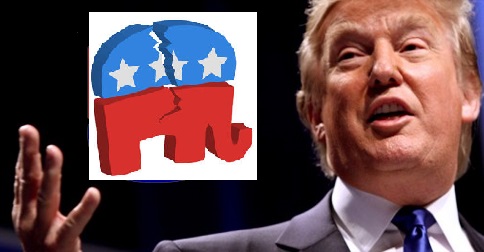Republican lawmakers reacted with nearly complete silence today to a New York Times investigation that revealed President Trump paid just $750 in federal income taxes in 2016 and 2017 and that he oversees a network of businesses that are riddled with debt and losing hundreds of millions of dollars.
Spokesmen for Senator Mitch McConnell of Kentucky and Senator John Thune of South Dakota, the top two Republicans in the Senate, declined to comment today.
A Republican involved in writing tax law, Senator Charles Grassley of Iowa, the chairman of the Senate Finance Committee, said this afternoon that he had read the article, but declined to comment on how little Trump paid in taxes.
“The thought that comes to my mind is how come it’s taking the I.R.S. so long to get the audits done,” he told reporters. Asked about the $750 tax payments, Grassley said: “I want to wait until the I.R.S. gets done so I know how much he owes.”
Representative Kevin Brady of Texas, the ranking Republican on the House Ways and Means Committee, did not respond to a request for comment.
Trump initially called the Times article “totally fake news” on Sunday, and then shifted to accusing the paper of basing the report on illegally obtained information about his finances.
Democrats quickly seized on the investigation.
House lawmakers, who have spent years fighting in the courts for access to the president’s tax records, hailed the revelations in the report as proof that their inquiries were justified.
“Trump hides his tax returns because, unlike most working Americans, he is a freeloader who doesn’t believe in paying taxes, only personally benefiting from taxes others pay,” Representative Lloyd Doggett, Democrat of Texas, said in a statement. “Most any American who pays taxes has paid more than Trump. He is a taker, not a maker.”
The House speaker, Nancy Pelosi, said today that the report raised national security concerns because of the amount of money that the president owes to lenders.
“This president appears to have over $400 million in debt, 420, whatever it is, million dollars in debt,” she told Andrea Mitchell, the show’s host. “To whom? Different countries? What is the leverage they have? So for me, this is a national security question.”
While Republican lawmakers dodged questions about Trump’s taxes, and the reliably friendly morning show “Fox and Friends” enlisted his press secretary and his oldest son to comment, a few others in the party weighed in.
John Kasich, the former Republican governor of Ohio who has endorsed Joseph R. Biden Jr., told CNN that the article could affect blue-collar voters who are not yet decided.
“These folks are scraping to make a living and they’re going to wake up to find out this incredible mogul paid $750? I don’t care what his excuses are,” Kasich said on “Anderson Cooper 360.” “It doesn’t pass the smell test. It’s not going to disrupt those people who were for him totally. They’ll still be for him. But it’s those people on the fence.”
Daniel Shaviro, on of the nation’s leading legal scholars on tax policy, says Trump’s tax returns also show he’s been lying to Americans about his wealth.
“The impending financial liabilities, and selling off of assets (plus taking out of loans) to keep the cash flowing is only one reason for concluding that, as a matter of net worth (as distinct, from say, lifestyle), Trump does not appear to be rich,” wrote Shaviro. “Consider that, from 2000 to 2018, his net profit from assets – his own businesses, plus investments in businesses run by others – is only $4.2 million (the excess of his investment gains over his business losses).”
Shaviro added Trump appears to be an absolutely terrible businessman.
“This is about $220,000 per year. Just as a very general ballpark comparison, if you were earning $220,000 per year from assets that offered, say, a regular 4 percent annual return, that would imply that you were worth only $5.5 million.”
There is an old saying that one can never detect tax fraud purely on the face of a tax return – but Shaviro concluded this comes closer than usual.
“Even wholly fraudulent tax returns generally do not proclaim their fraudulence on their face,” wrote Shaviro. “The Times article makes a powerful initial case, clearly meriting investigation, that substantial tax fraud may have occurred.”
